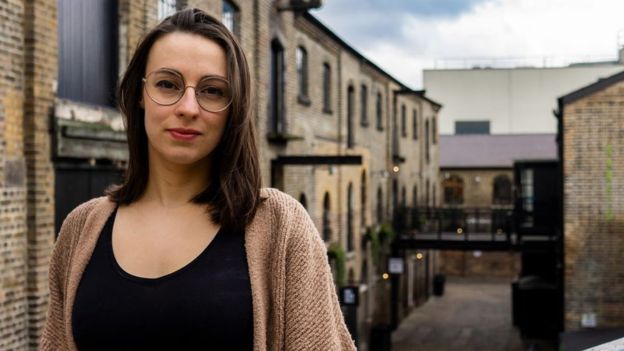The myths about pregnancy, anatomy, hygiene and sexual health have "lots of real-world consequences," Schechter told reporters ahead of the museum's opening on Saturday.
A heavy curtain divides the museum's temporary building into a reception and bookshop area and the exhibition room, where a giant Coke bottle and a model of a bloody tampon are among the eye-catching items on display.
Free-standing boards and placards on the walls have been installed to promote the museum's messages and bust myths about vaginas.
One of the displays explains that vaginas are self-cleaning and more hygienic when protected by pubic hair. Another addresses the myth that douching with Coca Cola after sex could prevent pregnancy - a notion that was popular in the United States in the 1950s and 1960s.
An online Vagina Museum in Austria was founded in 2014, but the London venue styles itself as the world's first "bricks-and-mortar museum dedicated to vaginas, vulvas and the gynaecological anatomy."
Schechter, a science presenter and comedian, said she wanted to open a museum after discovering 50 "major myths" about vaginas around the world and sensing a demand for "safe and inclusive spaces to have these conversations."
"Doing pop-ups for the past few years has shown me that people are desperate to engage with the issues," she said.
Schechter founded the museum as a charity after crowdfunding an initial 50,000 pounds (64,000 dollars).
"Our projection is to bring in income through our shop and our online store, through events and through donations," museum curator Sarah Creed told dpa.
Planned events "range from educational talks and book clubs and information from charities, right the way through to bingo nights and pub quizzes," Creed said.
They include a "very merry Clit-mas party especially for the Cliterati," a term the museum uses for its members.
"Our main thing with our public programme is that [events] are all educational," Creed said.
Despite some local residents raising concerns that it could attract rowdy hen and stag parties, the museum was granted an alcohol licence.
"We're by no means promoting ourselves as a party venue," Creed said, adding that the museum will examine booking requests "on a case by case basis."
The museum aims to develop a "forum for feminism, women's rights, the LGBT+ community and the intersex community," according to its mission statement.
"We wouldn't say that [events] are aimed at women, we say they're aimed at anybody that has a vagina or vulva," Creed said.
Group tours are available for schools, and the museum has already hosted a workshop called, "How to be a male ally."
"More often than not people think it's not a space for them to go into if you are somebody with a penis, or a man... and it's important to educate everybody equally about the subject matter," Creed said.
Given its location in the middle of bustling Camden Market, the museum is also likely to attract international tourists.
"We've had people come up and say, 'This is great but I learnt all this in school,'" Creed said. "Other people that have come in and said 'I've never heard of any of this.' So there's a real spectrum."
US-British actress Gillian Anderson and British television presenter Jameela Jamil are among the celebrities who have endorsed the museum on social media, where the museum has run into censorship.
"We've had issues, for example, with Facebook putting our shop stock online. Because it includes the word vagina, it goes against their obscenity policy," Creed said.
"A big part of our movement is to destigmatize the word," she said.
-------------------------------------------------------------------------------------









 Home
Home Politics
Politics











